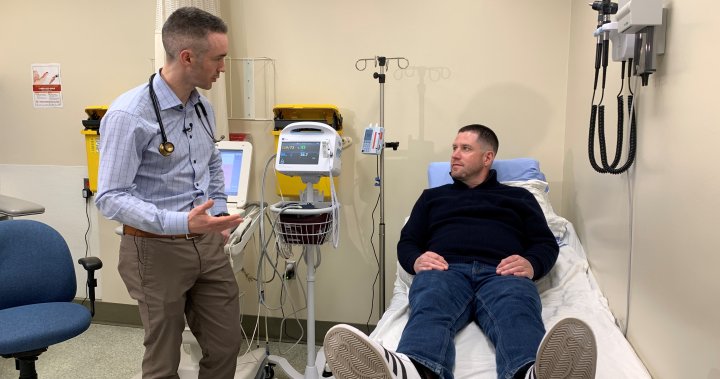Matt McArthur, a 41-year-old man from Kelowna, experienced a heart attack and is now enrolled in the SAVE BC program, which focuses on researching heart disease among younger, otherwise healthy individuals. The program aims to help identify, treat, and prevent premature cardiovascular disease. Started by two physicians in the Lower Mainland, the program was launched at Kelowna General Hospital (KGH) in 2019 and has been supported by a Kelowna family affected by premature cardiovascular disease, who donated a quarter of a million dollars to get it off the ground.
SAVE BC allows for additional tests to determine the factors that predispose patients to early onset cardiovascular disease, including blood tests and genetic testing. Dr. Jordan Webber, a cardiologist at KGH involved in the program, emphasizes the importance of testing first-degree relatives, such as parents, siblings, and children, to understand their risk and initiate early treatments and interventions if needed. Amanda Annett, a former cardiac nurse and lead study coordinator for SAVE BC Kelowna, highlights the potential for early detection to save lives by closely monitoring high-risk individuals and intervening more aggressively when necessary.
Currently, approximately 100 individuals, including patients and family members, are enrolled in SAVE BC at KGH, allowing clinicians to gain insights into premature cardiovascular disease. The program is expected to have a significant impact on both current patients and future populations. McArthur’s direct family members have also joined the program, believing it could benefit them, especially in cases where family members engage in activities that may put them at risk of a cardiac event. A free forum will be held in Kelowna on April 16th, organized by SAVE BC and featuring a panel of cardiologists, experts, and patients sharing stories and research results.
The forum aims to raise awareness about the risks of premature cardiovascular disease, emphasizing that it can affect anyone, regardless of age or health status. Annett stresses the importance of identifying and empowering individuals at risk to seek appropriate screening and testing for early detection of heart issues. Notably, genetics play a significant role in cardiovascular health, which cannot always be modified through lifestyle changes. The SAVE BC program is not funded provincially, and advocates hope for future changes in funding to expand its reach and impact across British Columbia.
By offering advanced testing and early intervention, SAVE BC provides a valuable resource for individuals and families at risk of premature cardiovascular disease. The program’s focus on research, education, and prevention underscores its potential to make a difference in the lives of those affected by heart issues. Through continued support and participation in programs like SAVE BC, communities can work together to enhance heart health awareness and improve outcomes for individuals facing cardiovascular challenges.















